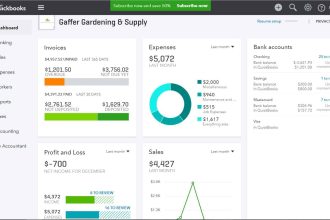When running a business, every decision is a piece of the puzzle that shapes success. And one decision that holds more significance than meets the eye is the choice of your business vehicles. But how can you ensure these vehicles are reliable for everyday operations and a smart investment in the long run? That’s exactly what we’ll dive into alongside KBB; that’ll help you make this decision confidently.

What to Consider When Buying Business Cars?
Buying a business car can be a hefty investment and a critical decision for achieving your business goals. When you decide to make that investment, there are a few vital factors to consider.
Budgeting for Business Vehicles
Your budget is the starting point for any business purchase, including vehicles. Hence, start by determining how much you can afford to spend on your business car. Additionally, don’t only account for the initial purchase costs. Instead, include ongoing car expenses like fuel, maintenance, and insurance in your budget limits.
To set a realistic budget:
- assess your current financial situation;
- consider whether you’ll buy new or used vehicles;
- account for additional costs such as taxes and registration.
Evaluating Your Business Needs
Different types of businesses require different types of cars. Therefore, understanding your business’s needs is critical for choosing suitable vehicles. For example, a delivery service might need small, fuel-efficient cars. On the other hand, a construction company may require trucks for transporting equipment.
To evaluate your business needs:
- determine the primary purpose of the vehicles (like deliveries or transporting clients);
- estimate the cargo capacity and passenger space required;
- consider the terrain and weather conditions your vehicles will encounter.
Fuel Efficiency
Fuel costs can significantly impact your monthly expenses, making fuel efficiency an essential factor to consider. Choosing vehicles with good gas mileage can save your business money in the long run. Additionally, environmental considerations are becoming more and more important. Hence, by opting for a fuel-efficient vehicle, you can save on costs and showcase your company’s commitment to sustainability.
For optimal fuel efficiency and environmental impact:
- research the miles per gallon (MPG) ratings of the vehicles you’re interested in;
- consider other fuel options like electric or hybrid vehicles;
- look into tax incentives for eco-friendly vehicle choices.
Maintenance and Repairs
A vehicle will run properly only with regular maintenance and necessary repairs. If you neglect them, you’ll most likely encounter unexpected breakdowns, which lead to more costs. You’ll also improve your car’s resale value and extend its lifespan.
To ensure efficient maintenance and repairs:
- make maintenance schedules for each vehicle;
- keep detailed maintenance records;
- consider a maintenance contract with a trusted mechanic or dealership.
Insurance Costs
Insurance is a necessary expense when you own business vehicles. The insurance cost can vary significantly based on the type of vehicle, driver history, and coverage levels. That’s why you should pay attention to insurance costs when budgeting for your business cars.
To manage insurance costs effectively:
- compare quotes from different insurance providers;
- consider higher deductibles to lower premiums;
- encourage safe driving practices among your employees to maintain a good claims history.
What’s KBB?
Kelley Blue Book (also known as KBB) is a trusted resource in the automotive industry. Its platform provides accurate vehicle valuations with numerous analyses and algorithms. With that data, KBB has precious market insights and pricing information. This information can make your car-buying decision a whole lot easier.
The Role of KBB in Vehicle Valuation
Kelley Blue Book has earned its reputation as a reliable source for determining the fair market value of vehicles. The role of KBB in vehicle valuation is very diverse.
Firstly, KBB collects data from various sources like dealerships and auctions. They even have access to private car sales, making their database very rich. This collection allows for extensive and up-to-date information on vehicle values.
KBB constantly monitors and analyzes market trends. The automotive industry prices keep changing, making it difficult to get proper quotes. Still, with KBB, you’ll have a much better insight into the realistic prices of vehicles.
Finally, KBB allows users to compare the prices of multiple vehicles. That feature enables businesses to make more informed decisions that match their budgets and needs.
Benefits of Using KBB for Business Car Purchases
Using KBB for business car purchases offers several advantages.
Transparency:
KBB’s extensive database and pricing information provides transparency throughout the buying process. It ensures that businesses can access reliable data to make the right call.
Time and cost savings:
KBB’s data prevents vehicle overpaying, which can significantly save business costs. This knowledge is invaluable in negotiations with sellers.
Resale value:
When selling business vehicles, having an accurate valuation from KBB can help maximize resale value. That allows you to protect your investment.
Confidence in decision-making:
Businesses can make confident and informed choices using KBB’s data and valuation tools. That gives them extra confidence in their car purchases.
Insurance and financing guidance:
KBB’s data can also be a valuable resource for insurance or financing for business vehicles. It ensures fair rates and terms.
Common Mistakes to Avoid
A few common mistakes can happen when buying cars for your business.
Overlooking Depreciation
One of the most common mistakes businesses make is overlooking the decrease in value. New vehicles, in particular, tend to lose value rapidly in the first few years. If you don’t consider this factor, you may face a significant loss in the vehicle’s value over time. Hence, always account for a vehicle’s depreciation rate and how it aligns with your long-term business plans.
Not Doing the Research
Buying new vehicles for your business can be truly exciting. However, that excitement can trick you into not gathering enough information. Rushing into purchases without looking into the model and market value can result in poor choices. Take the time to do thorough research and follow through with the purchase. Of course, KBB can be an excellent guide.
Not Inspecting the Vehicle Thoroughly
Sometimes, businesses skip thorough vehicle inspections, especially when buying used cars. In that scenario, unpleasant surprises like hidden mechanical issues can be very costly to fix. Always have a trusted mechanic inspect the vehicle to ensure it’s in good condition.
Not Considering Resale Value
Although the initial costs for purchasing a vehicle are vital, they shouldn’t be your only priority. While getting a good deal upfront is essential, you should also consider how it retains its value over time. A car with a strong resale value can save your business money in the long run.
Ignoring Long-term Costs
The long-term costs of a vehicle are arguably even more important than the initial purchase. Fuel efficiency, maintenance, and vehicle insurance can quickly increase your spending. These ongoing expenses can significantly impact your bottom line.
Final thoughts
The choice of vehicles is more than just a means of transportation; it’s an investment that impacts your business. That’s what makes it so important to approach this purchase strategically. Utilizing resources like Kelley Blue Book (KBB) for vehicle valuations can provide transparency, confidence, and significant savings.
Moreover, avoiding common mistakes is vital to your business’s financial health. By embracing these tips and insights, you can ensure that your business vehicles contribute to your business’s long-term success and efficiency.













